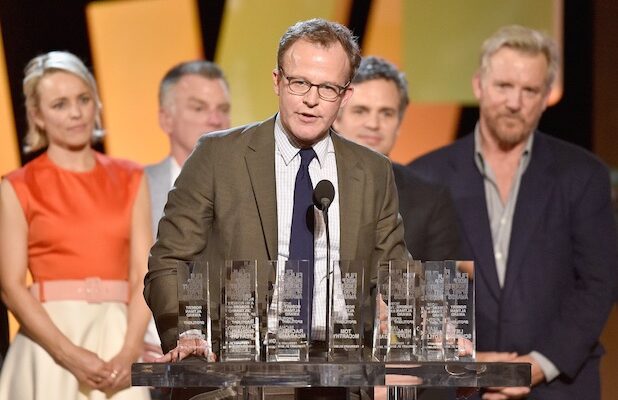
This week's top pick is the latest "surprise" hit comic book adaption "Deadpool". Taking place in the X-Men universe, this unambiguously R-rated offers an alternative outlook on what it means to be a "superhero". With a foul-mouthed jokester at the center, first-time director Tim Miller delivers an action-comedy film that's naughtily entertaining.
Ryan Reynolds stars as our eponymous star, a former Special Forces operative named Wade Wilson who, soon after falling madly in love with his dream girl (played by Morena Baccarin), gets the worst news of his life. After a sudden collapse one day, a doctor informs him that he has terminal cancer that has spread throughout his body. Some time after, a mysterious man approaches him with a potential cure and Wade decides to take a chance. But the experiment turns ghastly, forcing him to endure extreme torture to activate any latent mutant genes. Overseeing his distress is the sadistic Ajax (Ed Skrein), who leaves him irreparably disfigured. To make matters worse, Wade learns that he is destined to become a super slave with powers to healing powers. Rejecting his fate, he manages to escape his captivity, vowing to exact revenge and restore his former life.
"Deadpool" signals its irreverent intentions from the opening credits, which list the cast as featuring such characters as "the hot chick" and "the comic relief". From there, we get whizz-bang action sequences that would give you whiplash if it weren't for the intermittent flashbacks. In this regard, editor Julian Clarke finds a nice balance between character development and spectacle. Avoiding lengthy "origin story" exposition but still giving a full understanding of Deadpool's backstory amidst the thrills, the film is very well paced.
The film's most successful experiment though, is its crude tone, laying waste to the taboos of sex and foul language usually absent from blockbuster entertainment. And breaking the fourth wall with mischevious glee is Ryan Reynolds in his most charismatic performance to date. Perfectly cast as a knowingly sexy bad boy, the role will surely mark a renaissance of sorts for this longtime A-list-but-not-quite movie star.
Unfortunately, some of the other filmmaking choices weren't as astute. As the film's main villain, Ajax is too sadistic without much of a reasonable motive beyond simply being pure evil. In addition, the immortality he shares with Deadpool makes the climactic battle feel like an excuse for gratuitous violence with no actual impact. And in general, as much as the film consciously tries to break free from the established mold of comic book films, it still eventually succumbed to some of the more annoyingly familiar tropes. But all things considered, the film's debauched sense of humor felt truly fresh and exciting. "Deadpool" may not be groundbreaking cinema, but within its limited scope it provided a thoroughly enjoyable time from start to finish.
| Tweet |



_poster.jpg)

_poster.jpg)












